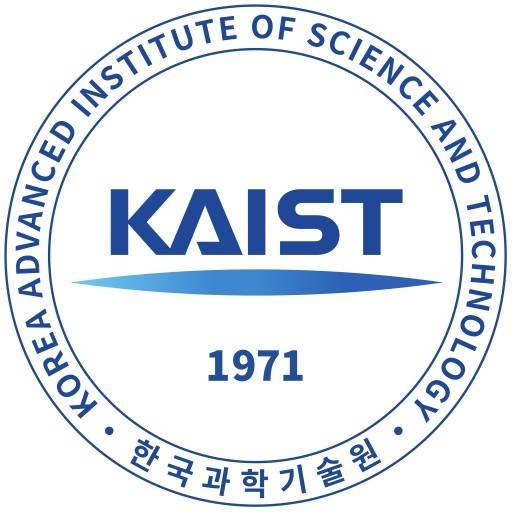Photos of university / #official_kaist
The Civil and Environmental Engineering program at Korea Advanced Institute of Science and Technology (KAIST) is a comprehensive and highly interdisciplinary curriculum designed to equip students with the fundamental knowledge and practical skills necessary to address the complex challenges of modern infrastructure development and environmental sustainability. This program emphasizes a strong foundation in engineering principles, combined with innovative approaches to leverage cutting-edge technologies for the design, construction, and maintenance of resilient and sustainable civil infrastructure systems. Students have the opportunity to explore diverse areas such as structural engineering, geotechnical engineering, transportation systems, water resources, environmental engineering, and urban planning, enabling them to develop holistic solutions to real-world problems. The program fosters an environment of research and experimentation, encouraging students to engage in projects that involve advanced simulations, laboratory investigations, and field studies. It also emphasizes the importance of sustainability, environmental protection, and disaster mitigation, preparing graduates to contribute meaningfully to society by improving the safety, efficiency, and environmental compatibility of infrastructural systems. KAIST’s Civil and Environmental Engineering program benefits from world-class faculty, state-of-the-art laboratories, and strong industry partnerships, providing students with opportunities for internships, collaborative research, and international exchange. Graduates are well-equipped to pursue careers in academia, industry, consulting, and government agencies, or to continue their education through advanced degrees in specialized fields. The curriculum is regularly updated to incorporate emerging trends and innovations, ensuring that students are prepared for the evolving demands of global civil and environmental engineering sectors. Through a rigorous academic pathway complemented by practical experiences, students develop critical thinking, problem-solving, and leadership skills relevant to building a sustainable and resilient future for communities worldwide.
Mandatory Basic
- Special Lecture on Leadership
- Ethics and Safety I
- Introduction to Computer Application
- Probability and Statistics
- Introduction to Materials and Engineering
Elective Major
- Advanced Mechanics of Solid
- Advanced Soil Mechanics
- Advanced Environmental Chemistry
- Applied Mathematics
- Structural Dynamics
- Mechanics of Composite Materials
- Finite Element Analysis
- Reliability Analysis of Structures
- Bridge Engineering & Design
- Introduction to Smart Structure Technology
- Geotechnical Experiments
- Rock Engineering
- Site Investigation and Monitoring
- Analysis of Soil Behavior by IT
- Design of Underground Structures
- Earth Retaining Structures for U-space
- Sustainable Infrastructure Systems Engineering
- Data, Decision and System Analysis
- Transportation System analysis and Operations
- Transportation Policy and Legislation
- Soft Computing Techniques for Engineering Design
- IT for U-Space
- Mechanical Design of Civil Robot
- Intelligent Control for Construction IT
- Introduction to Civil Robotics
- Environmental Design for U-Eco Spaces
- Theory of Social Overhead Capital Policy
- Ubiquitous & Biomimetic Building Engineering
- Intelligent U-Space Transportation Systems
- Human Thermal Environments
- Environmental Engineering Laboratory
- U-Space System Environmental Biotechnology
- Advanced Wastewater Treatment
- U-Space Environmental Nanotechnology
- Integrated Water Resources Management
- Hazardous and Industrial Waste Treatment
- Structural Pattern Recognition for Statistical Health Monitoring
- Elastoplastic Analysis and Design of Structural Systems
- Theory and Methods of Engineering Design
- Special Topics in Structural Engineering Design for U-Space
- Special Topics in Geotechnical Engineering Design for U-Space
- Special Topics in Environmental Engineering Design for U-Space
- Special Topics in U-Space Construction IT Design 제
- Inelastic Analysis of Reinforced Concrete Structures
- Stability of Structures for U-Space
- Earthquake Engineering
- Vibration Control of Structures
- Advanced Numerical Soil Mechanics
- Advanced Soil Dynamics
- Signal Processing for Civil Engineering
- Geotechnical Earthquake Engineering & Design
- Theory of Geophysics
- U-Space Advanced Environmental Unit Processes
- U-space Advanced Environmental Remediation Engineering
Research
- M.S. Thesis
- M.S. Seminar
Requirements
- Application Form
- Statement of Financial Resources
- Letters of Recommendation
- Degree/Diploma
- Transcripts
- English Proficiency Test Reports (EPT)
TOEFL (PBT 560, CBT 220, IBT 83), IELTS 6.5, TEPS 599, TOEIC 720 or higher - Curriculum Vitae
- List of Honors and Awards
- Employment Certificate
- School Profile/Credit Rating System
- The application fee is KRW 80,000 or USD 80. Payment can be made by credit card or bank transfer after writing application form online. Please note that application fee is non-refundable and you cannot modify application form once you pay the application fee.
Scholarships
- KAIST International Student Scholarship
- Korean Government Scholarship (KGSP)
- Russian Government Scholarship – Global Education Program (GEP)
The Department of Civil and Environmental Engineering at the Korea Advanced Institute of Science and Technology (KAIST) offers a comprehensive undergraduate program designed to equip students with fundamental knowledge and practical skills in the fields of civil and environmental engineering. The curriculum emphasizes a multidisciplinary approach, integrating principles of structural engineering, geotechnical engineering, transportation engineering, water resources engineering, and environmental engineering. Students are provided with opportunities to engage in cutting-edge research and innovative projects that address real-world challenges such as sustainable development, urban infrastructure, environmental protection, and disaster mitigation. The program includes coursework in advanced mathematics, physics, materials science, and computer-aided design, fostering analytical and problem-solving skills essential for modern engineering. Laboratory work, field studies, and team-based projects are integral parts of the education, encouraging hands-on experience and teamwork. The university's state-of-the-art research facilities, laboratories, and collaborations with industry partners provide a conducive environment for experiential learning. Graduates of the program are prepared for careers in academia, government agencies, private engineering firms, and consultancy organizations, where they can contribute to planning, designing, constructing, and managing civil and environmental infrastructure. The program also supports graduate studies and research opportunities for students interested in pursuing advanced degrees in civil and environmental engineering or related fields. Emphasizing sustainability, innovation, and technological advancement, the KAIST civil and environmental engineering curriculum aims to develop engineers capable of leading efforts toward resilient and eco-friendly infrastructure development in Korea and globally.


